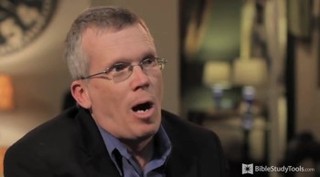
- Recent Translations
- All Translations
Yēlìmǐshū 1:6
Share
Settings
Images for Yēlìmǐshū 1:6

Yēlìmǐshū 1:6 Meaning and Commentary
Then said I, Ah, Lord God!
&c.] The word (hha) , "Ah", or "Ahah", is used in distress and grief, as Kimchi observes; and is expressive of mourning and complaint, as Jarchi notes; and shows that the prophet was troubled and uneasy at his call, and would gladly have been excused on the following account: behold, I cannot speak;
or, "I know not how to speak" F18; properly and pertinently, politely and eloquently, especially before great personages, kings and princes, and the citizens of Jerusalem, being brought up in a rustic manner in the country. A like excuse Moses made, ( Exodus 4:10 ) . The Targum is, "I know not to prophesy: for I am a child"; meaning either in knowledge and understanding, or in years; not a mere child, but a "junior", as the Septuagint version renders the word; or a "young man", as the Arabic version; so Samuel and Zechariah were young men, when they first ministered in their office, ( 1 Samuel 3:1 ) ( Zechariah 2:4 ) . Abarbinel supposes that Jeremiah was now twelve or fifteen years of age; but it should seem rather that he was more, perhaps twenty years of age; since he seems to have prophesied to the men of Anathoth before he was sent to Jerusalem, ( Jeremiah 11:21 ) ( Jeremiah 12:5 Jeremiah 12:6 ) .
F18 (rbd ytedy al) "uescio loqui", V. L. Munster, Vatablus, Junius & Tremellius; "non novi loqui", Pagninus, Montanus.


